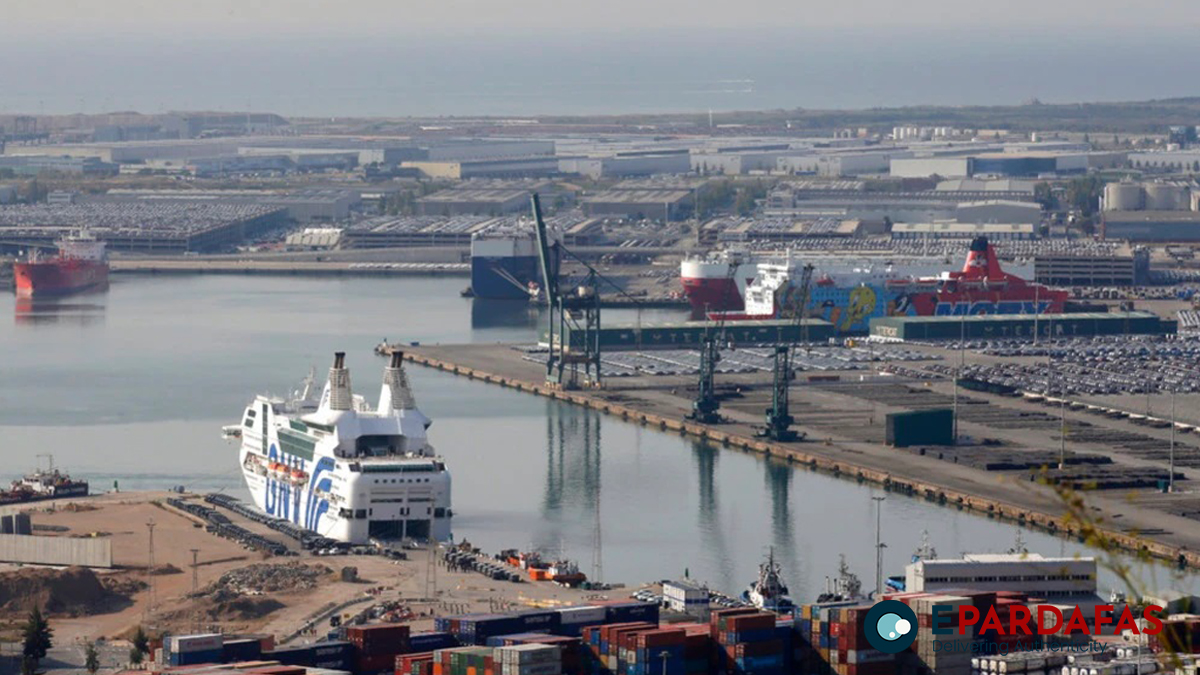
U.S. Congress Passes Legislation Banning Pentagon from Using Ports Linked to Chinese Logistics Platform LOGINK
Aimed at safeguarding national security, the U.S. Congress has approved legislation prohibiting the Pentagon from utilizing any seaport worldwide associated with the Chinese logistics platform known as LOGINK. The legislation, introduced as an amendment to the National Defense Authorization Act (NDAA) for fiscal 2024, was sponsored by Senator Tom Cotton and Representative Michelle Steel.
LOGINK, which monitors cargo and ship movements, has raised concerns among U.S. lawmakers who argue that its usage allows Beijing to closely track America’s military supply chain, predominantly reliant on commercial ports. The amendment not only bans the Pentagon from using LOGINK-affiliated ports but also prohibits federal funding for any port employing the Chinese logistics platform.
The NDAA, which passed on December 14, awaits President Joe Biden’s signature, with the LOGINK ban set to take effect six months after approval. Representative Michelle Steel emphasized the seriousness of LOGINK’s threat in an email interview with VOA, citing its operation under the Chinese Communist Party and Beijing’s substantial investments in over 100 ports across 60 nations.
The U.S.-China Economic and Security Review Commission (USCC), which monitors the national security implications of U.S.-China trade, expressed concerns in a September 2022 report. According to the USCC, LOGINK’s visibility into global shipping and supply chains could potentially enable the Chinese government to identify vulnerabilities in the U.S. supply chain and track shipments of U.S. military cargo on commercial freight.
A spokesperson for the Pentagon’s U.S. Transportation Command acknowledged China’s visibility into global logistics through initiatives like the Belt and Road Initiative, emphasizing the need to address potential risks.
LOGINK currently partners with more than 20 ports worldwide, including locations in Japan, South Korea, Malaysia, Europe, and the Middle East. Despite the absence of LOGINK port contracts in the U.S., the NDAA mandates a study on how foreign influence at the 15 largest American container ports could impact national and economic security.
Ivan Kanapathy, a former member of the National Security Council, emphasized the national security risk posed by Chinese companies operating ports in the U.S. The NDAA requires a comprehensive study to inform policies countering such risks.
The legislation also calls for the development of an alternative to LOGINK, recognizing the need for a platform that can operate at a comparable scale. Gabe Collins, a fellow at Rice University’s Baker Institute for Public Policy, estimates that LOGINK collects data on up to half of all global shipping capacity.
The U.S. ban serves as a “demand signal” to the market, indicating the necessity of inventing an alternative to LOGINK. However, experts anticipate it may take up to five years to develop a viable alternative. The legislation further mandates the secretary of state to initiate negotiations with allies and partners to remove LOGINK from their ports, with compliance expected within six months.
While the long-term global impact remains uncertain, the International Association of Ports and Harbors expressed the need for more time to assess its members’ responses to the new legislation. Former Assistant Secretary of Defense Randall Schriver revealed that some European leaders were unaware of LOGINK and its monitoring capabilities, underscoring the importance of heightened awareness and strategic considerations in port-related decisions.















Comments